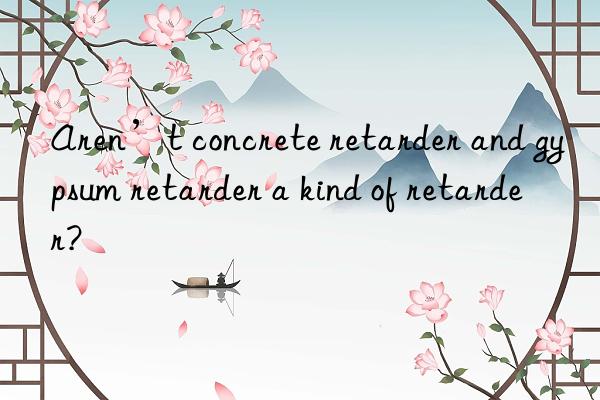
The last process of cement production is to grind the cement materials and gypsum together, in which gypsum (calcium aluminate dihydrate) is generally added About 5% (equivalent to 1~3% SO3), which acts as a retarder. The mineral tricalcium aluminate (C3A) in cement hydrates very quickly. If gypsum is not added to slow the setting, the setting time of the cement will be very short or even flash setting will occur.
The reason why gypsum can retard setting is because calcium sulfate dihydrate can quickly dissolve and quickly react with the gel produced by the hydration of tricalcium aluminate to form ettringite, which is wrapped in tricalcium aluminate. The surface of the mineral particles acts to isolate water, thereby delaying the further hydration reaction of tricalcium aluminate.
Calcium sulfate is divided into anhydrous, semihydrated and dihydrate calcium sulfate. Calcium sulfate dihydrate (ie gypsum) has the best solubility and the best retarding effect. Anhydrous calcium sulfate, especially burnt anhydrous calcium sulfate, dissolves too slowly and basically has no retarding effect. The effect of calcium sulfate hemihydrate is not necessarily certain.
</p



 微信扫一扫打赏
微信扫一扫打赏
